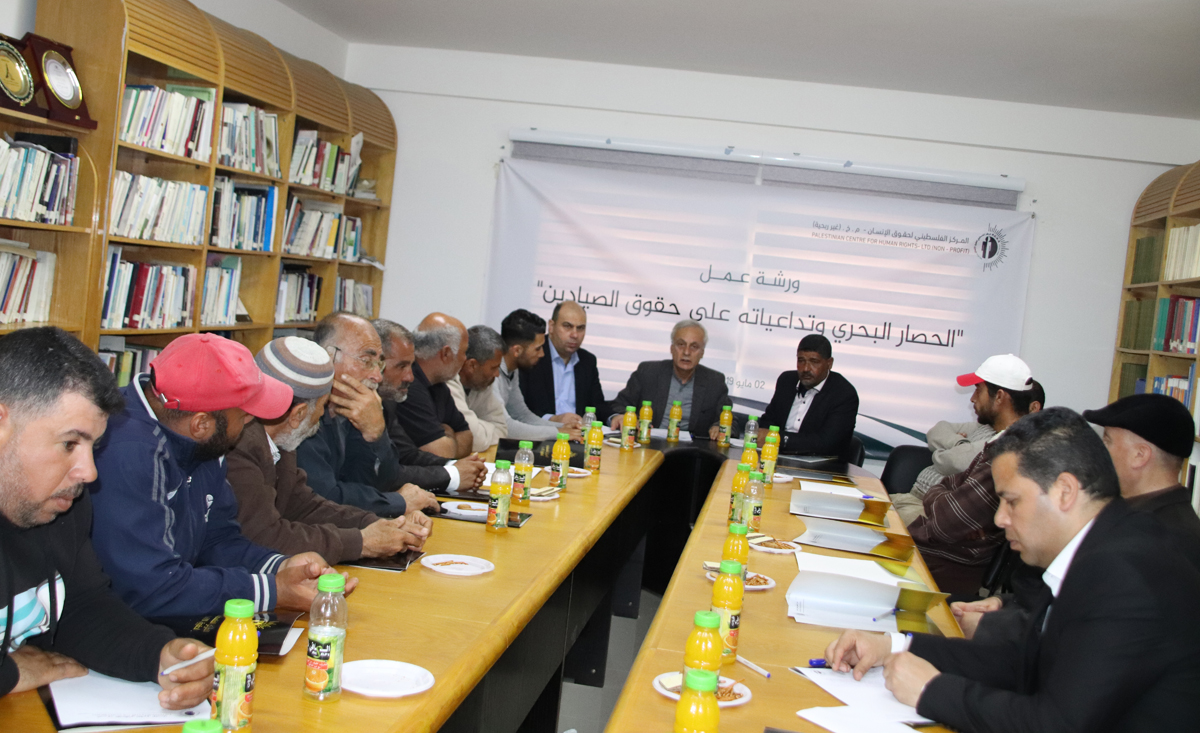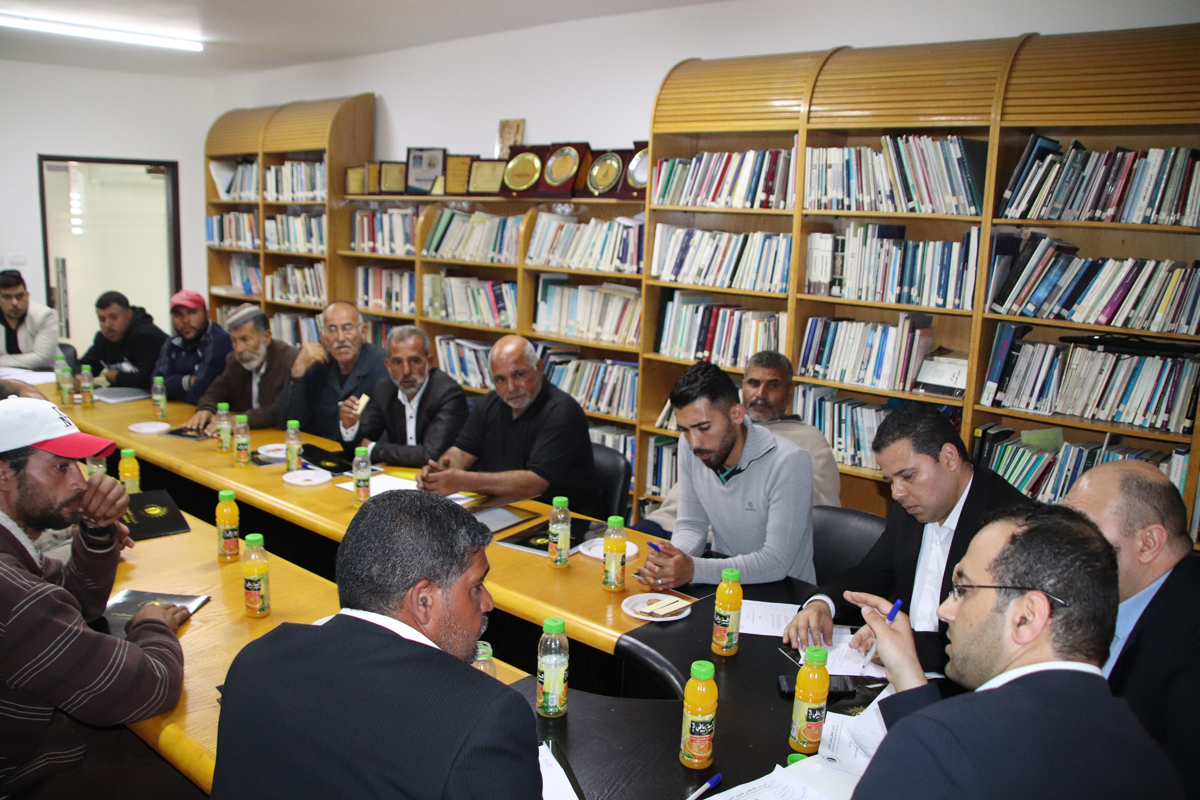
On Thursday, 02 May 2019, the Palestinian Center for Human Rights (PCHR) organized a workshop titled as “Naval Blockade and Its Repercussions on Fishermen’s Rights” in PCHR’s head office in Gaza City. The workshop was attended by experts representing the fishermen, Fish Wealth Sector, Union of Agricultural Work Committee (UAWC), civil society organizations and media.
Khalil Shain, Director of PCHR’s Economic and Social Rights Unit, opened the workshop, which as he said aims at discussing the fishermen’s conditions in light of the ongoing Israeli naval blockade imposed on the Gaza Strip and Israeli restrictions on Fishermen’s freedom of work. He also reviewed the serious violations against the Palestinian fishermen within the allowed areas for fishing.
 Dr. Fadel al-Muzaini, a researcher in the Unit, presented the reporte titled as “Israeli Attacks against Palestinian fishermen,” which addresses the serious violations committed by the Israeli naval forces against the fishermen in the Gaza Strip. He also shed light on the suffering of fishermen while practicing their work and the daily attacks against them, which aim at restricting their movement, preventing them from sailing and fishing freely, and targeting their livelihoods. The report also documented the Israeli forces’ attacks against the fishermen in the Gaza Strip from 01 November 2017 to 30 April 2019.
Dr. Fadel al-Muzaini, a researcher in the Unit, presented the reporte titled as “Israeli Attacks against Palestinian fishermen,” which addresses the serious violations committed by the Israeli naval forces against the fishermen in the Gaza Strip. He also shed light on the suffering of fishermen while practicing their work and the daily attacks against them, which aim at restricting their movement, preventing them from sailing and fishing freely, and targeting their livelihoods. The report also documented the Israeli forces’ attacks against the fishermen in the Gaza Strip from 01 November 2017 to 30 April 2019.
In his presentation, Zakaria Baker, Head of Fishermen Committees in the UAWC, ensured that the Israeli forces manipulate the fishing allowed areas. Baker also emphasized that expanding the fishing area without allowing the entry of fishing equipment and spare parts for boats and fishing is in vain, especially as the boats are only qualified to sail up to 3 nautical miles. Moreover, the other boats are unqualified because they need spare parts, which are banned by the Israeli forces from entering the Gaza Strip.
Engineer ‘Ala’a al-Farra, from the Fish Wealth Sector at the Ministry of Agriculture, addressed the economic situation of the fishing sector. He indicated that the fishing sector suffers from serious problems that reduced its contribution in the Gaza Strip’s economy as required, and the forefront of these problems is the Israeli naval blockade. Al-Farra ensured that last April, which witnessed an expansion of the fishing area, didn’t witness any increase the fish production. This was due to several reasons such as Israeli forces’ recurred attacks against fishermen, the allowed fishing area, overfishing issue by fishermen due to limiting the fishing area in specific Gaza Strip shores throughout the years.
At the end of the workshop, the participants concluded the following recommendations: